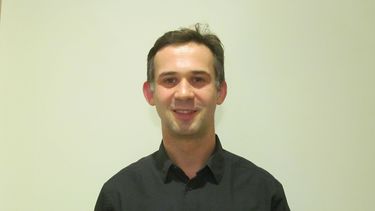Can you briefly describe your career up to date?
I studied at the Saint-Petersburg State University in Russia and I finished my PhD in 2011 at Northwestern University in the US. Before coming to Sheffield, I was a postdoc in Bonn, Mainz and in Edinburgh. I started a permanent job at SoMaS as a Lecturer in 2014. I was promoted to Senior Lecturer in 2022 and to Professor in Algebraic Geometry in 2024.
Can you describe your general research area?
I have varied research interests in Pure Mathematics. At different times in my career I was interested in Topology, Number Theory and Algebraic Geometry. Sometimes I even think of them as one field! Recently my focus is on Algebraic Geometry: studying geometric shapes via algebraic equations. For example, if we write an equation x^2 + y^2 = 1, we call it a circle. What if x and y are now complex, not real numbers? What if x and y are rational numbers, or integers? What if we look at x^3 + y^3 = 1? What if there are more variables? More equations? Intuition coming from other fields of pure mathematics, such as Complex Analysis, Topology, Number Theory, Differential Geometry are helpful in studying these kinds of questions.
What is your ERC project about?
The ERC project which has been converted to the UKRI grant has the title: 'Motivic invariants and birational geometry of simple normal crossing degenerations'. Let me briefly comment on each term in the title: 'birational geometry' is a subfield of Algebraic Geometry studying functions which are almost everywhere defined and almost everywhere invertible. An example is a stereographic projection of a sphere from the North pole. 'Degenerations' refers to smooth shapes acquiring singularities, and 'simple normal crossing' are my favourite types of the degenerations: they are universal in a very precise sense, yet often easy to understand. Finally 'motivic invariants' refers to Grothendieck's motives, one of the important, and largely conjectural set of ideas in Algebraic Geometry and Number Theory. I intend to understand the relationship between these a bit better, in order to gain new insights in Algebraic Geometry.
What kind of support does your ERC grant provide?
The grant is for a five year period. There are four postdoctoral positions, and two PhD positions. In addition we have funds to invite collaborators and we will run a conference (or maybe even several conferences!) in Algebraic Geometry in Sheffield.


